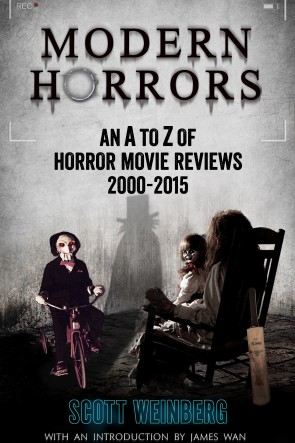Retro Review: THE GOOD DOCTOR (2012){0}
Of all the scary things we poor humans have to deal with, putting our lives in the hands of someone else has to rank among the most terrifying. We hope, pray, and trust that if we’re stricken by something life-threatening, our attending medical professionals are among the world’s smartest, purest, and most talented. In most cases, fortunately, we won’t need a miracle worker, and, let’s be fair, most doctors are pretty damn good at their jobs. In the case of Lance Daly’s ironically-titled The Good Doctor, however, we’re dealing with a subtly but insidiously deranged medical practitioner. Not Dr. Giggles-style lunacy, but something much worse…
Dr. Martin Blake is a young man who is clearly having a stressful time in his first year of residency. Dr. Blake seems competent enough — even if he’s not completely confident in his ability to draw a patient’s blood — but he has an arrogant demeanor, a quiet sense of entitlement, and (obviously) a rather inadequate bedside manner. Blake butts heads with a no-nonsense head nurse, makes a mild blunder that causes an allergic reaction in a patient, and generally does very little to impress his superiors.
Enter (on a gurney) the young and pretty Diane Nixon, who is suffering from a serious but plainly treatable blood infection. At first Dr. Blake takes a special interest in his new patient, but once she’s released, he does something truly horrific: he poisons her medication, which means she’ll be coming back to the hospital — and all of a sudden, Dr. Blake’s fortunes seem to improve. The head nurse seems a little less brusque, the other doctors start to take an interest in Blake’s work, and the pretty patient gives the devious doc something he clearly needs: a sick and twisted sense of validation.
Suffice to say that things quickly spiral well out of control for Dr. Blake, and, to their credit, director Lance Daly and writer John Enbom do a fine job of ratcheting up the tension in slight but effective ways: a sleazy orderly starts to take notice of Blake’s activities; the head-honcho doc starts to take a specific interest in Ms. Nixon’s case; and it turns out that the head nurse might hold a grudge after all. The filmmakers play it very matter-of-factly; Blake’s nefarious deeds are neither “amped up” for the horror audience, nor is the character ever allowed to break loose in Patrick Bateman fashion. Basically, The Good Doctor is a downbeat but intermittently fascinating character study of a plain man who does evil things for selfish reasons.
It certainly doesn’t hurt the film that Orlando Bloom delivers an admirably ambiguous performance. The veteran of numerous mega-budget action flicks, Bloom is clearly trying to expand his horizons in a smaller film about a twisted little man (indeed, Bloom is also a producer on the movie), and he does fine work with a role that never lets him scream, rage, cut loose, or act “crazy” in any typical way. The banality of Blake is part of what makes The Good Doctor interesting.
Slightly undone by a third act that is quick but slightly unsatisfying, yet still intriguing enough for the whole of its 90-minute frame, The Good Doctor also succeeds through strong support from Michael Peña (the orderly), Taraji P. Henson (the head nurse), Rob Morrow (the boss), and newcomer Riley Keough (the patient). The Good Doctor might not be the flashiest or most gruesome “psycho doctor” thriller you’ll ever see, but it’s a chilly little indie that’ll creep you out a bit … or make you really angry.








